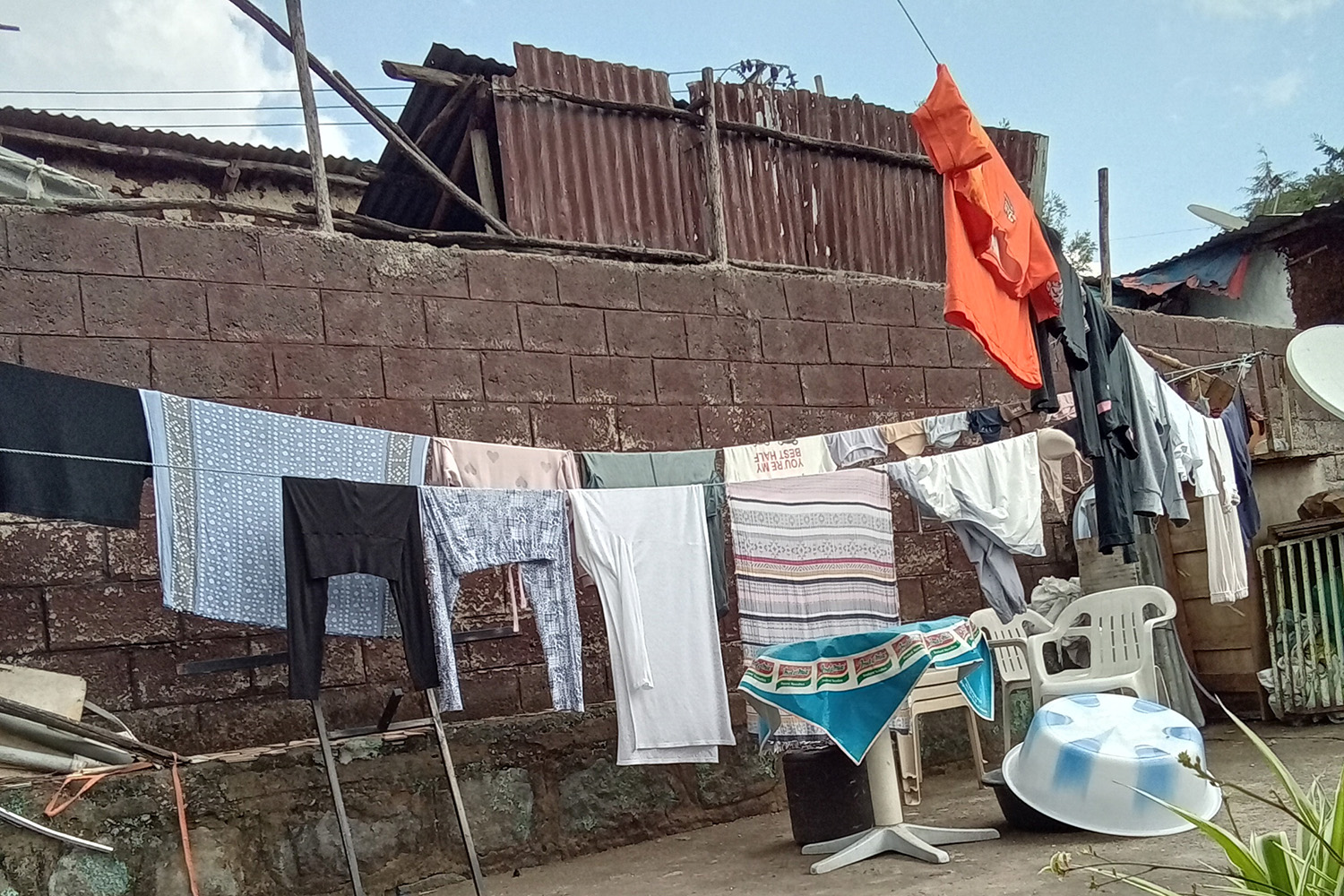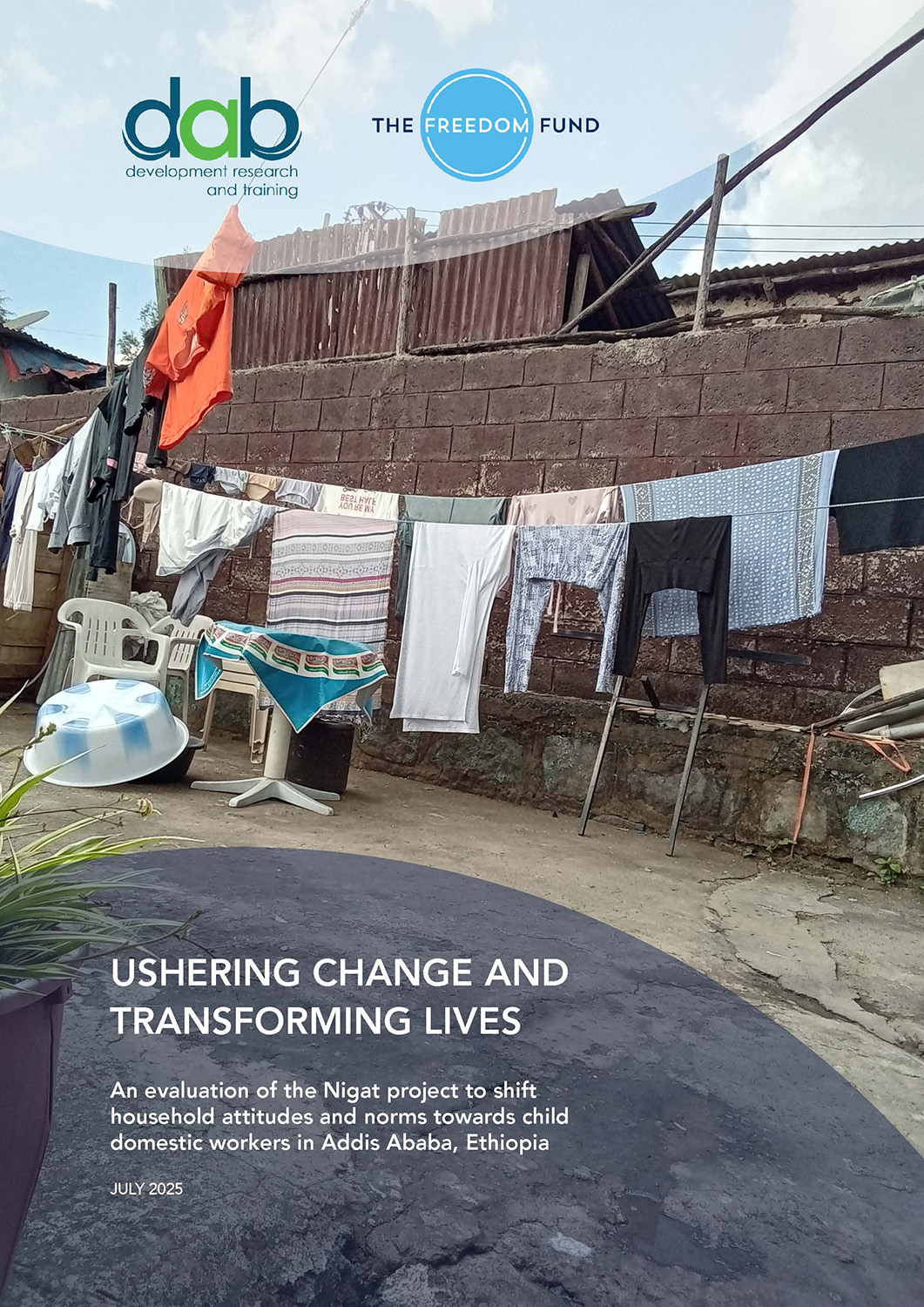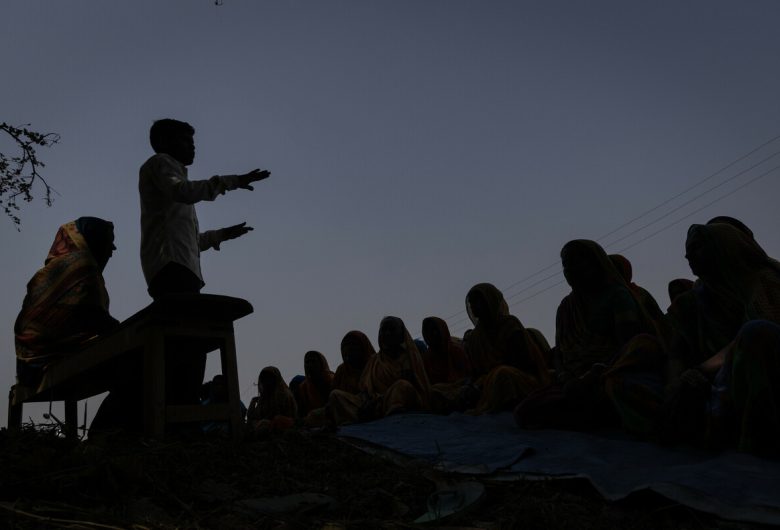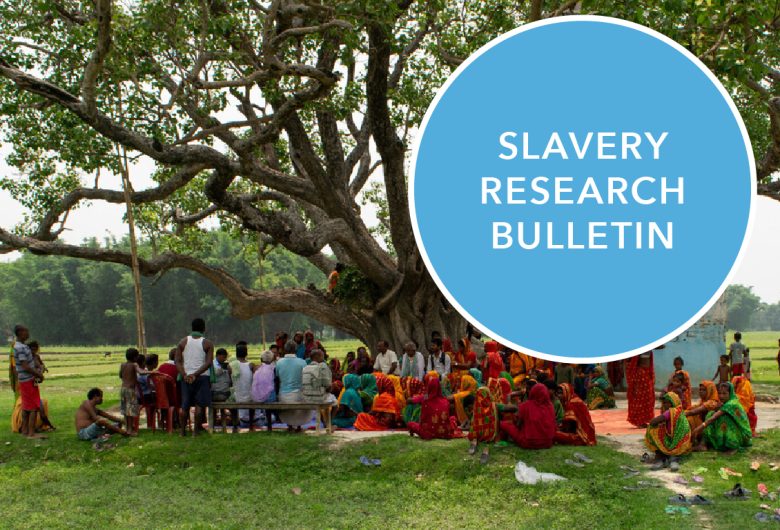An evaluation of the Nigat project to shift household attitudes and norms towards child domestic workers in Addis Ababa, Ethiopia
In Addis Ababa, Ethiopia, a study in selected neighbourhoods found that 37% of girls aged 12 to 17 were engaged in domestic work, driven by poverty, cultural norms and gaps in the education system (Erulkar, 2022). The Nigat project aims to promote safe and dignified conditions for child domestic workers (CDWs) in Addis Ababa through a community-based, multi-stakeholder approach. The project directly engages with households that employ CDWs, providing support to employers, children of employers (COEs) and the CDWs themselves. It is a partnership between Emmanuel Development Association, Hope for Children in Ethiopia, Mahibere Hiwot for Social Development, The Freedom Fund and the Oak Foundation.
Between January 2023 and October 2024, DAB Development Research & Training conducted an external evaluation of the Nigat project. Using a quasi-experimental design, and collecting data using Photovoice, interviews and focus groups, the evaluation revealed real changes in social norms, attitudes, living and working conditions across three timepoints: baseline (January 2023), midline (May 2024) and endline (October 2024). The study involved 219 CDWs, COEs and employers from 73 households, drawn from two groups: those who took part in Nigat activities (‘intervention group’) and those who did not (‘non-intervention group’).
Key findings
Improved living and working conditions for CDWs
At the start of the project, many CDWs faced poor sleeping arrangements, exclusion from family meals, long working hours and abusive environments. By the project’s end, significant improvements were observed. More CDWs reported better sleeping conditions, inclusion in family meals and reduced verbal and physical abuse. In the intervention group, for example, 60% of CDWs at baseline reported consuming poor-quality food and eating separately from family. This reduced to 17% by the endline, 21 months later. In contrast, the average working hours among CDWs only decreased slightly between baseline to endline, from 9 down to 8 hours per day.
Increased school enrolment and educational support
The project significantly increased school enrolment for CDWs in the intervention group, with participation in formal and Alternative Basic Education rising from 54% at baseline to 93% at endline. Employer support played a key role in this progress. Only 34% of CDWs in the intervention group reported receiving educational support from employers at baseline, which grew to 44% at midline and 73% by endline. This support included providing educational materials and allowing time for CDWs to attend classes and complete homework.
Shifts in relationships and social norms
Household norms around how CDWs are treated began to shift in the intervention group, reducing social isolation and improving CDWs’ sense of belonging. COEs showed greater empathy and more positive attitudes towards CDWs, which corresponded with a reduction in reported social isolation for CDWs, from 36% at baseline to 18% at endline. Similarly, reports of abuse declined over time, particularly in the intervention group, where reports of verbal abuse fell from 27% at baseline to 9% at endline.
Conclusion
Since its inception, the Nigat project has made important strides towards creating a safer and more supportive environment for CDWs in Addis Ababa. As the project concludes, ongoing collaboration with policymakers, communities, schools and children themselves will be essential to sustain the project’s progress. Insights from the Nigat evaluation place the priorities of CDW at the core of support services, guiding the roadmap for longer-term change.
Recommendations
- Strengthen legal protection and recognition of CDWs by recognising domestic work as a form of employment under the Ethiopian Labour Proclamation (No. 1156/2019) and advocating for the International Labour Organization’s (ILO) Domestic Workers Convention, 2011 (No. 189).
- Improve school structures and the COE curriculum by collaboration between schools and Nigat partners through various peer groups and mentorship programs aimed to promoting the rights and treatment of CDWs within their communities.
- Provide mainstream material support such as school supplies and fees through local groups and iddirs for sustainable, locally driven assistance to vulnerable households and improve CDWs’ overall wellbeing.
- Maintain safe spaces and services for CDWs to connect with peers, access mental health and legal support and keep family communication.
- Continue shifting social norms by highlighting positive employer role models and challenging harmful cultural expectations.
- Address socioeconomic challenges of employers by linking them with various anti-poverty initiatives and social protection programs, reducing economic pressures that contribute to exploitative child domestic labour.
- Promote child-centred research approaches that prioritise children’s lived experiences and needs, measuring dignity and belonging as key indicators of progress.
Click below to access the full Nigat evaluation report.




